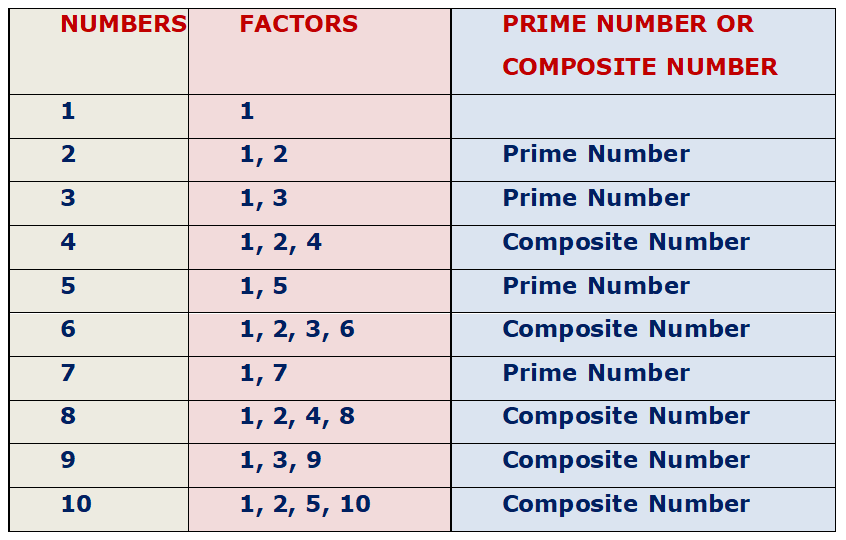CLASS-4
PRIME & COMPOSITE NUMBERS
PRIME & COMPOSITE NUMBERS -
PRIME NUMBERS:-
A number which has only two factors, namely one and the number itself is called a prime number. Composite numbers are the numbers which having more than two factors, i.e., other than 1 and the number itself.
Example: 11 is a prime number as it has only two factors 1 and 11.
11 ÷ 1 = 11.
Factors of 11 are 1 and 11.
Example - 2, 3, 5, 7, 11, 13, 17, 19, 23, 29, 31, 37, 41, 43, 47,...........................
COMPOSITE NUMBERS:-
Example: 15 is a composite number as it has more than two factors.
15 ÷ 1 = 15
15 ÷ 5 = 3
15 ÷ 3 = 5
Factors of 15 are 1, 3, 5, and 15.
Other than 1 and 15, it has a third & fourth factor 3 & 5 So, 15 is a composite number.
Example - 4, 6, 8, 9, 10, 12, 14, 15, 16, 18, 20, 21, 22, 24, 25, 26, 27, 28, 30, 32, 33, 34, 35,....................

NOTE :-
· One is not a prime number, since it has only one factor.
· Two is the only even prime number.
· 4 is the first composite number.
There are some other way of understanding about Prime & Composite number -
Your second block of text...